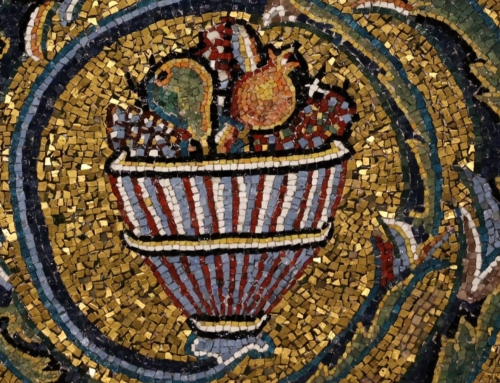Wedding season hath begun.
Which means every Saturday evening from now through the early autumn many a soul will go home . . . sad.
Not because the bakery dropped the cake during the delivery, or the best man botched his speech, or the weather wasn’t perfect.
I’m talking about the sadness that follows upon sincere joys. As children, the dam breaks on Christmas night, with the recognition that there are no more gifts left to look forward to. In high school, my female friends called it PDD, short for “Post-Dance Depression.” After all the buildup and anticipation, the dance itself was but a fleeting joy, while the PDD seemed to cling to them for days. Something similar happens with weddings, for participants and guests alike.
Why? There are plenty of factors to consider, but ultimately one answer perdures: while He gives us abundant worldly joys, God did not make us for the sake of such temporary delights. They are all fleeting. We are not. And because of this reality, dictated as it is by the terms of our fallenness, we hurt. We long. Sometimes in small ways, other times with deep, existential aches.
The fact that we experience such longing is telling. Ours is a wedding-obsessed culture (even though we’re doing an historically bad job at staying married, to say nothing of the increasing confusion over what marriage is and what it’s meant for). We live not as if a wedding were for the sake of a marriage but rather as if a wedding simply is the marriage. But this is not the problem—it’s actually the right instinct. It’s just misapplied, insofar as it is being applied to this earthy life.
Only in heaven will the marriage be the wedding feast.
If we operate according to any other principle, we will either be disappointed or will dull our natural desire for something greater, something infinite we can’t help but ache for. Our hunger proves the existence of food, the thing that satisfies our hunger (otherwise hunger would be inherently unnatural, and nature doesn’t behave that way; it acts for an end). The same applies to our hunger for something infinite, some unending happiness.
You see, we should be obsessed with weddings. We were made for the sake of a wedding feast—an eternal one. As a result, all forms of authentic human fulfillment are but heavenly foretastes. That is why they don’t, and can’t, fully satisfy.
In a letter of spiritual consolation, the Dominican friar Bl. Jordan of Saxony appeals to this dynamic. To the Dominican sister Bl. Diana of Andalo he writes, drawing on festive imagery from the Psalms and Revelation 19:7-9,
For soon now the time will come for the wedding-feast of the Lamb whose right hand is filled with gifts to console those who weep with longing for their true country and to give drink to those whose souls are bitter with the thirst of love: he will wipe away the tearful waters of this present time, and turn their sad insipidity into the wine of the saints, the noble wine which rejoices the heart of man and inebriates with its sweetness the beloved of God, the wine of everlasting gladness, the splendid new wine which at the banqueting-table of the court of heaven is poured out for his chosen ones by the Son of God who is blessed for ever and ever.
When I’m at Mass, I think about what heavenly worship will be like. When you’re at your next wedding, at some particularly moving moment, think on the everlasting moment of the heavenly wedding feast. On true light and total fulfillment. On exquisite delight and gladness without end. Such thoughts can move us to recognize more of heaven—that is, God Himself—already present to us, in a certain sense.
He is present in our very longing for perfect happiness. God alone is our perfect happiness, and through our desire for happiness He draws us to Himself, He who is our final end. He wishes to abide in us now (cf. Jn 14:23, 2 Cor 13:5), and does so through the sanctifying grace He makes available to us through the Church and her sacraments. By means of this grace, we will abide in the sweet fullness of His presence when we behold the beatific vision (CCC 1028).
So thanks to God’s grace, the spiritual wedding has already begun, and unlike this year’s wedding season, it will have no end.
✠






